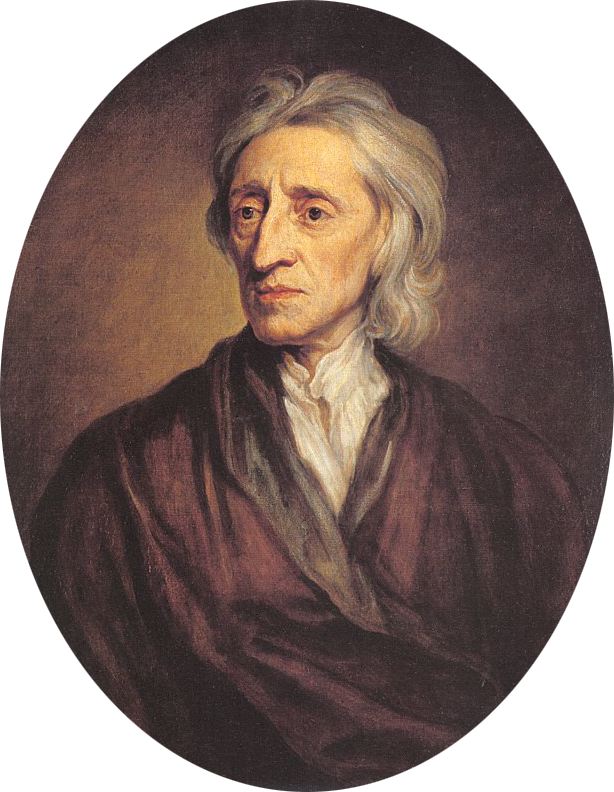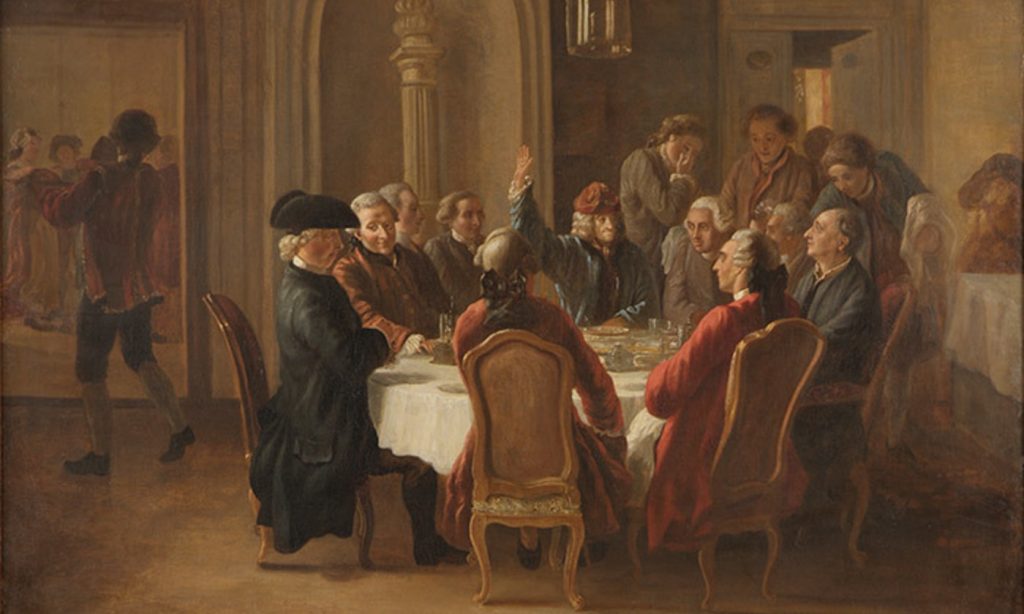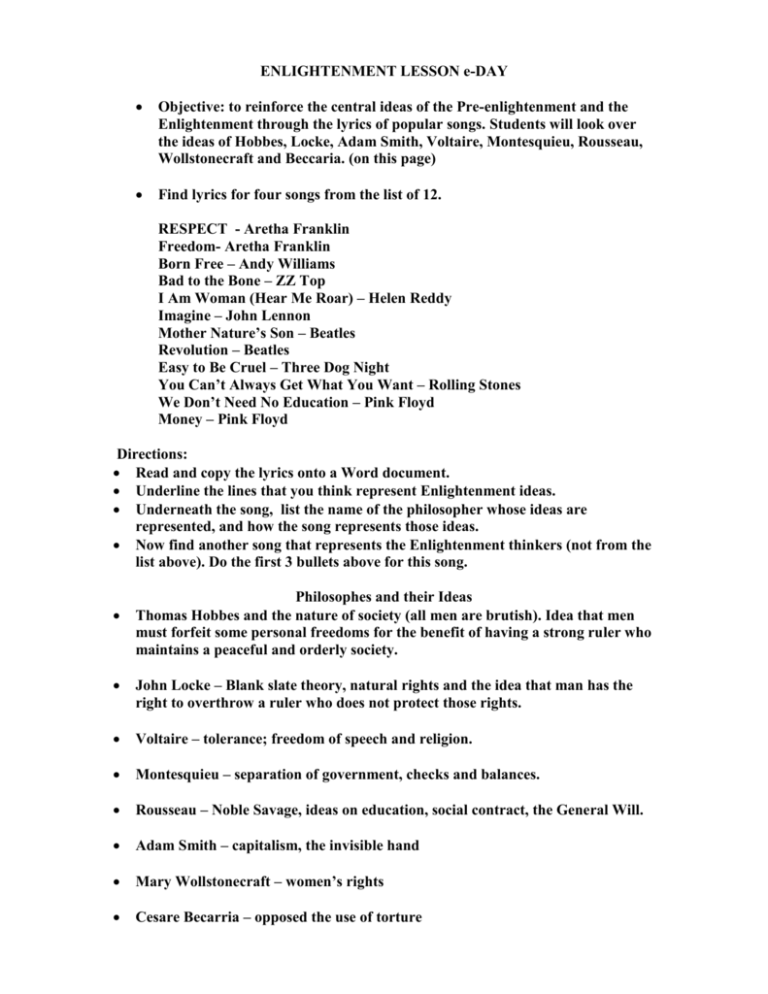Music Events During the Classical Period --The events of the Classical period which spans from 1750 to 1820 include the active composers and the. Which statement best describes the Enlightenment.

Music During The Enlightenment Period Video Lesson Transcript Study Com
Baroque Music Music of the Baroque time can be seen in history from about 1500 to 1750.

. They had faith that absolute monarchs would govern wisely and fairly. The Classical period in music ranged from approximately. Agricultural industries experienced no changes.
We have relied on art and music for expression. The Enlightenment also awakened a general interest in the various arts as mediums of expression. 2 By the mid-18th century the Aufklärung The Enlightenment had transformed German high.
Baroque in Portuguese means intricate irregularly shaped and extravagant. Explore the music of the Enlightenment period a time of social and intellectual change 17th and 18th centuries. 2 which statement best describes a social contract Aan implied agreement between citizens and government in which citizens release some liberty to government for the good of society Ba contract between local residents and providers of basic services.
Rococo also referred to as Late Baroque is an 18th-century artistic movement and style which affected several aspects of the arts including painting sculpture architecture interior design decoration literature music and theater. This style was in between the renaissance era and the classical era. Requiem an unfinished work The Marriage of Figaro Don Giovanni and Così fan tutte are undoubtedly the best of the musical compositions to be ever written.
Music of the Enlightenment. Music during the Enlightenment. The Enlightenment was a European movement that spread to the colonies.
Music especially those relating to Pythagoras or Jubal were still held valid in the seventeenth century and lingered for the better part of the eighteenth but the important fact that concerns us here is that it was the Enlightenment that definitely abandoned the myths in favor of concrete theories. The British colonist Benjamin Franklin gained fame on both sides of the Atlantic as a printer publisher and scientist. He embodied Enlightenment ideals in the British Atlantic with his scientific experiments and philanthropic endeavors.
The beginning of public concerts The middle class sought entertainment which they could now afford Music was no longer for the private amusement of a privileged few Composers like Haydn invented new ways to indulge large audiences with music that demanded greater attention He often included a narrative theme. The Enlightenment was a European movement that the colonists rejected. Back then there was no wide variety of music like there is today there were only a couple different styles.
Music during the Age of Enlightenment has been labeled today as being Baroque and Classical. The Renaissance was focused on sculpture and architecture whereas the Enlightenment primarily focused on music The Renaissance looked back to the Greeks and Romans for truth whereas the Enlightenment looked forward to new. This era was dominated by the Declaration of Independence and by thoughts of thinkers such as Thomas Jefferson Alexander Hamilton and James Madison who laid the founding stones of the modern free.
This time gave birth to many of the greatest musical works of all time defined by many wonderful characteristics. The Age of Enlightenment also known as the Age of Reason influenced the arts by gradually replacing the complexity and opulence of the baroque style with the simplicity and clarity of neoclassicism. Illustrations and music examples in this and the January article by kind permission of Universal Edition Music in the Age of Enlightenment Daniel Heartz The Age of Enlightenment 1745-1790 the latest volume in the New Oxford History of Music is like its predecessors a conglomerate of several authors planned if that is the appropriate term.
Led by Rousseau Herder. Question 1 100 Points During the Enlightenment period which of the following was true. The Age of Enlightenment or the Age of Reason emphasized.
Changes in Music The Enlightenment also saw. Which of the following best describes the difference between the Renaissance and the Enlightenment. Music played a key role during the enlightenment.
The music of Haydn and Mozart with their Viennese Classical styles are usually regarded as being the most in line with the Enlightenment ideals. Which statement best describes the Enlightenment. The Enlightenment was a movement that Thomas Jefferson started.
The Enlightenment included a range of ideas centered on the value of human. Centered on the idea that reason is the primary source of authority and legitimacy this movement advocated such ideals as liberty progress tolerance fraternity constitutional government and separation of church and state. A philosophical movement in 17th and 18th century Europe.
The Age of Enlightenment was a cultural movement of intellectuals beginning in late 17th-century Europe emphasizing reason and individualism rather than tradition. People did not understand geography and still thought the world was flat. The Enlightenment called on humankind to attempt.
Music of the Classical era is characterized by lyrical singable melodies. Which statement best describes the beliefs of the Enlightenment thinkers. The Classical era coincided with a movement called the Enlightenment.
The most common style was the opera. The first of the two styles was the baroque style. 25 Questions Show answers.
Discover how music changed in this period elements of the new style and new. Eighteenth-century thinkers and artists turned away from the idealized civilization of the Greeks and Romans and embraced the realism of the Middle Ages. The Age of Enlightenment also known as the Age of Reason or simply the Enlightenment was an intellectual and philosophical movement that dominated Europe in the 17th and 18th centuries with global influences and effects.
The Age of Enlightenment was a philosophical movement that dominated the world of ideas in Europe in the 18th century. To the first percussive instruments. The Enlightenment was an intellectual movement in the eighteenth century that emphasized reason and science.
The Enlightenment was a movement that grew out of unrest in the colonies. People lived in utter lawlessness and complete fear. We have relied on art and music for expression.
But during the Age of Enlightenment the gaudy gold style of art and architecture changed drastically as composers steered music into a new era of classicalism and melodic harmonies.

The Enlightenment Period Article Khan Academy

Resourcesforhistoryteachers Main Ideas Of Men And Women Enlightenment Thinkers

0 Comments